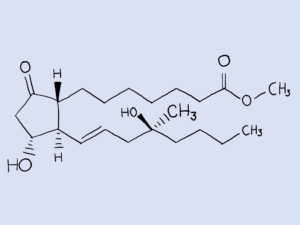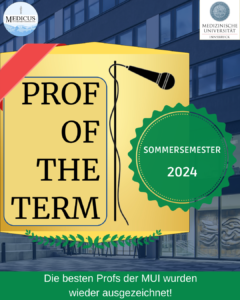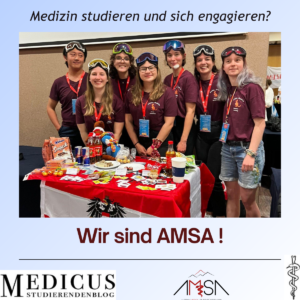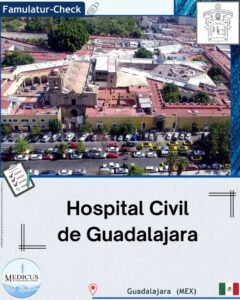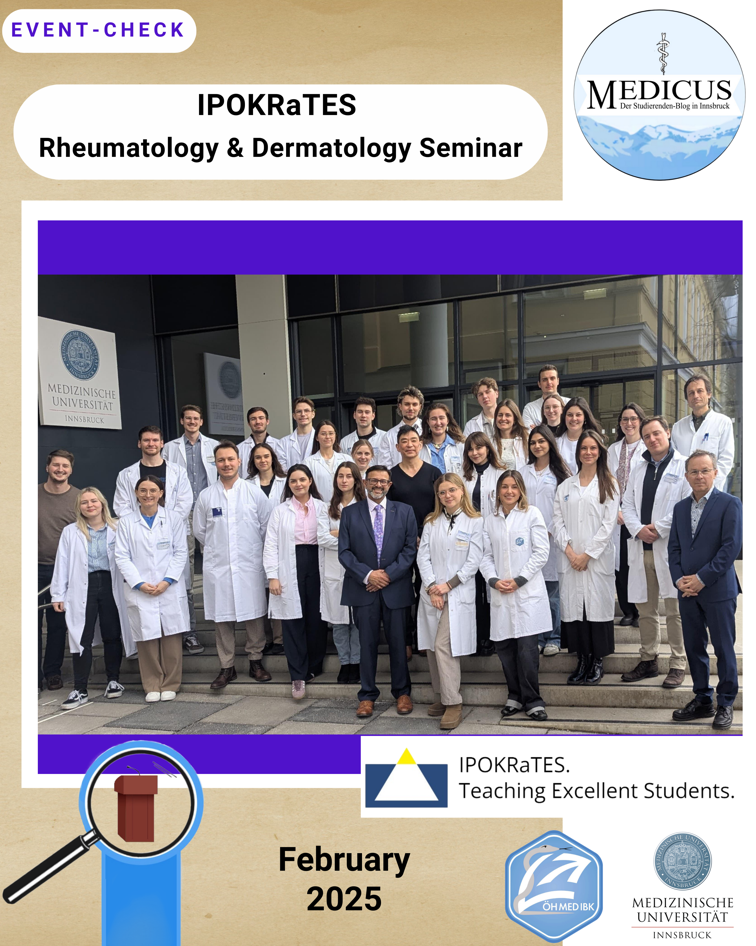
IPOKRaTES – Rheumatology & Dermatology Seminar

Dear reader,
the surprise was enormous when my tutor Michelle, who had previously told me about this compelling project she participated in, messaged me out of the blue to ask me if I’d like to partake. I had filled out the form way back in November and hadn’t given it much thought since, unsure of when – or if – I’d move up the waiting list and be offered a spot.
What I didn’t know was that this experience would eventually turn out to be one of the most interesting things I’ve done at university – the IPOKRaTES Rheumatology and Dermatology seminar. Those who may now think that those two specialties might be boring or do not fit together may need to reevaluate, because not only is that factually wrong, but the flame was further sparked by the flame of the professors. But I am getting ahead of myself. What even is IPOKRaTES?
IPOKRaTES Students, part of the IPOKRaTES Foundation founded in 1984 by Georg Simbruner, organizes week-long seminars for medical students focused on bedside teaching, primarily in Austria and Germany. Since its first seminar in 1994, students have learned from top-tier international educators – mainly from well-renowned US institutions -who teach pro bono. The program focuses on patient-centered learning, from intellectual clinical basics to lively in-depth case discussions.
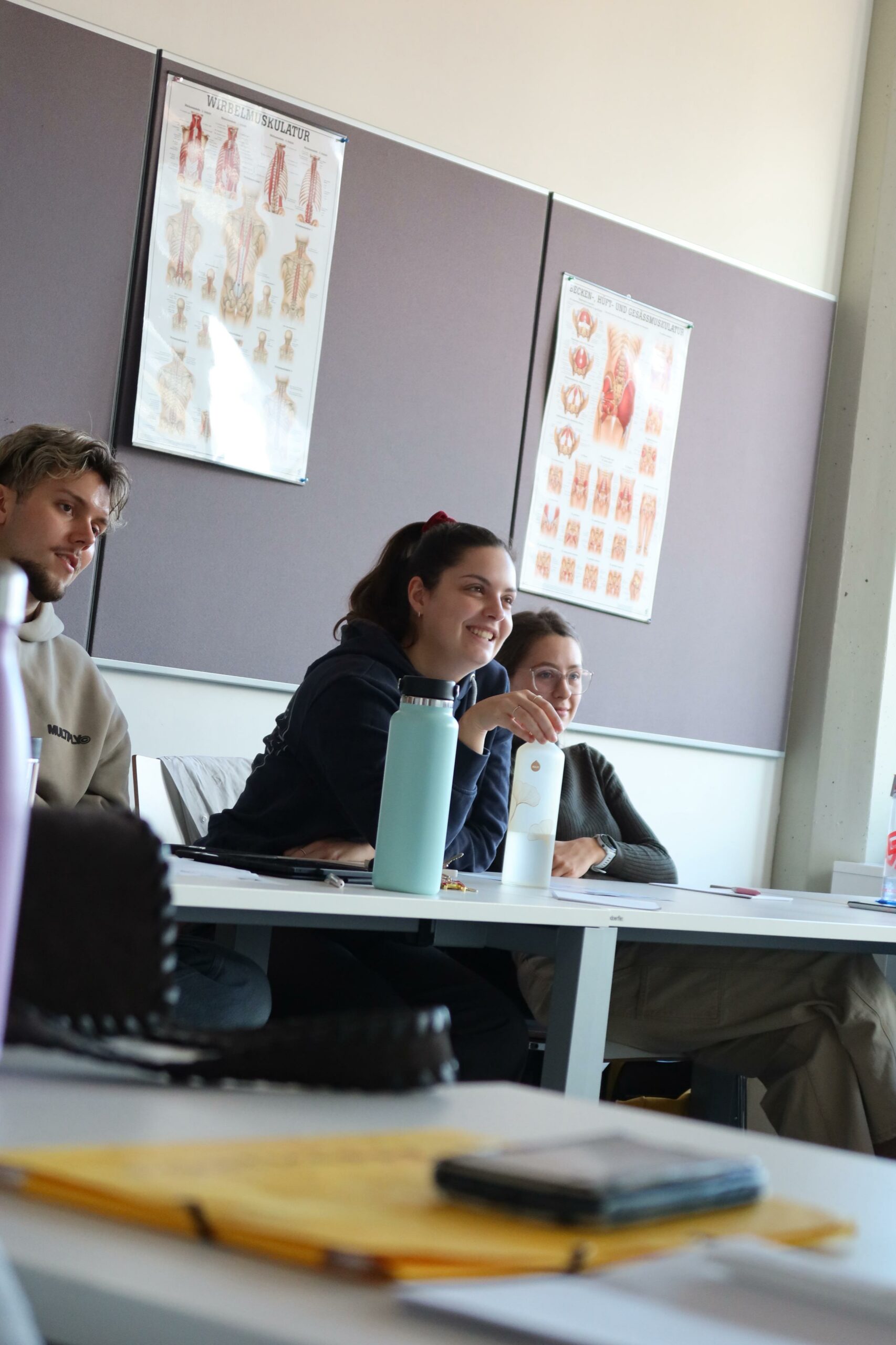
Sofie Nagele (mitte) schreibt auch für den Medicus. © Medicus/IPOKRaTES
So with all the history in my mind, I quickly skimmed over the website to not appear as unprepared as I felt, I entered the seminar room which was already full of people I was set to get to know. Although I was by far the youngest semester around, and very evidently so, I didn’t think much of it (yet). We started with a general introduction on the first day with fun games and snacks. Comparable to our ÄGF, Dr. Samir Patel, MBBS, who is a chief physician of rheumatology in North Bristol, held one of the most compelling presentations about taking medical histories. To him it is probably the most important part of being a good doctor … listen closely, the patient might give away his condition. As a bonus, he taught us how to do a proper neurological examination centered on arthritis, a key discipline when handling any inflammatory process. This part especially was fun because we were all animated to join Dr. Patel and test the movements on ourselves.
And as quickly as the morning had started, it was over and we were on our way to bond even more at lunch. After that, we started seeing patients in small groups of 4-5 people. This was something very special to me since my last real patient was a while ago in the setting of me being a paramedic. In groups of four to five, we examined different patients, prefacing each one of them to omit their diagnosis to us, and there the fun started. We took their history and learned hands-on how to do a proper neurological examination while ruminating over the results of the latest blood work. One of our guest professors came along to provide tremendous extra knowledge. After concluding our primary results with the patient we went back to the seminar room to strengthen with a cup of coffee and snacks and reenergize with sozializing. We sat down and began working on our case presentations, eventually presenting them in plenum, and discussing the various patients each group had worked on.
© Medicus/IPOKRaTES
And so the days went by, always starting with a key lecture with a focus on rheumatology or dermatology, a much-needed coffee break after intense studying, and last but not least, focusing again on the bedside teaching. We even had a guest lecture by dermatology professor Dr. Schmuth, who delivered a conclusive overview of key aspects of the skin. Speaking of that, one of the most memorable things was the dermatology slideshow of the most gruesome skin diagnoses one can imagine. Dr. Raymon Cho, MD, PhD, a professor in residence at the Department of Dermatology at UCLA, made sure to go through each one in detail, deliberately explaining how to approach the complicated structure of dermatological diagnosis. On top of that, since we had time at the end of the week, he quickly thought of a kind of game, where half of the student body became patients and the other half doctors, who had to question them. It not only started a conversation due to the outstanding performances of the patients but further drove home the point that an eloquently done medical history report makes or breaks a good differential diagnosis.
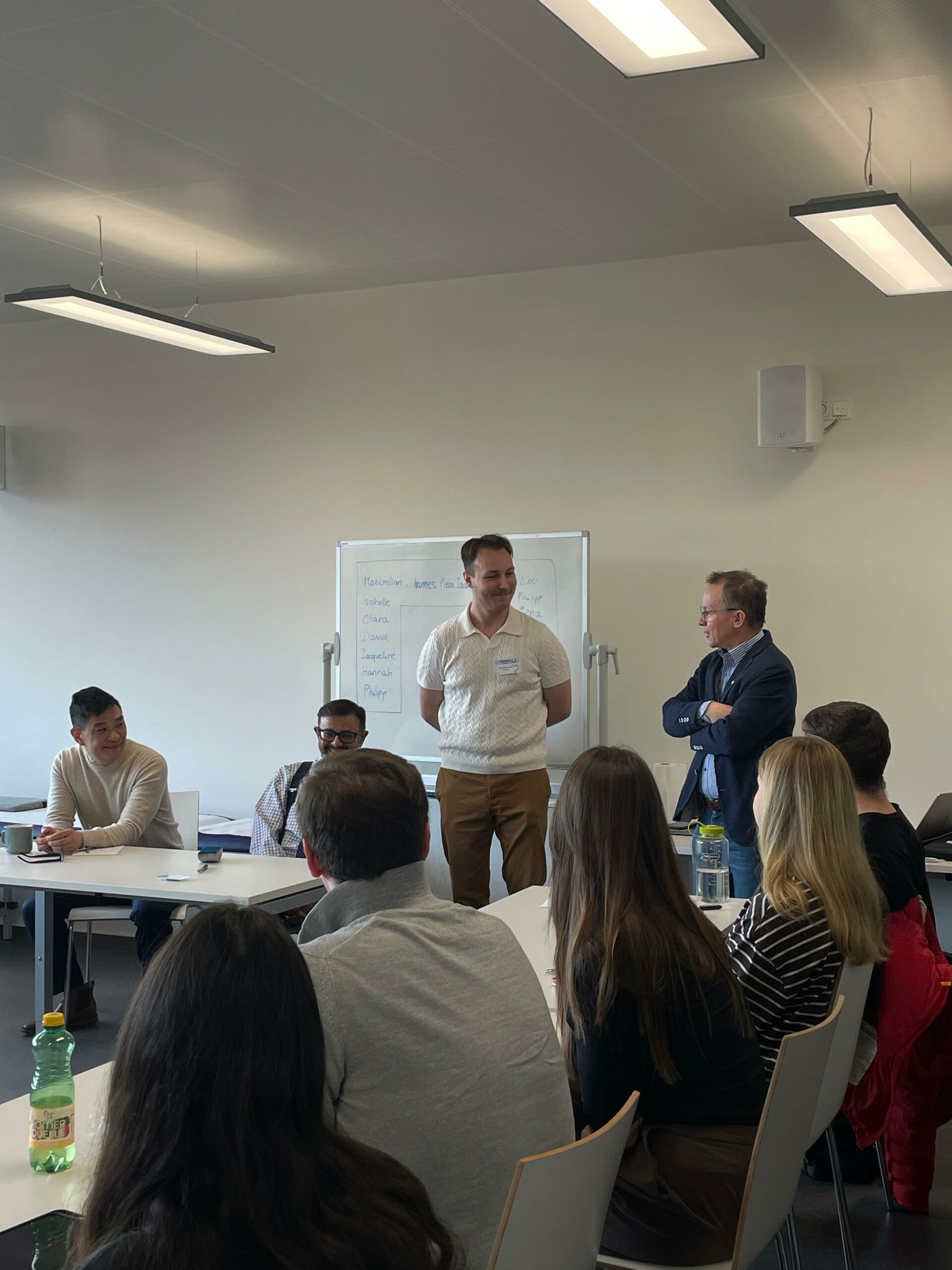
Mitten im Bild: Hristofor Parvu (schreibt ebenfalls für den Medicus) © Medicus/IPOKRaTES
You didn’t think that was all we did during the week, did you? After a full day of intense learning, there was always a fun evening program planned by the amazing IPOKRaTES team—like bowling, devouring good food at Nepalese restaurants, or having the most fun at the karaoke bar Copacabana, where we sang the night away with crazy renditions of the best pop songs, like Mamma Mia feat. the whole bar. All of these activities made us bond even more and created lasting memories for years to come.
One might think: What did I take away from this seminar? That is an excellent question. One could think nothing, due to my nonexistent knowledge compared to the others, but that was not the case. As said in the first paragraph, I learned so much from how to do a proper health record, seeing patients who were of a different caliber compared to the ones I’d seen previously to reviewing different approaches on how to do various examination styles elegantly and effectively. This is probably the most important part of the story: you truly get to feel the role of a doctor, what you’re about to diagnose, and how to properly cater to all the different standards you’re required to uphold. The lectures too were an integral part of becoming familiar with the pathophysiology of various common and rare diseases, where I did learn a lot thanks to the kindness of the other participants who explained to me things that were just out of reach for my semester. The versatile wisdom and vast understanding of the professors helped a lot too.
In conclusion, what stood out to me most was how, as the week progressed, our group grew closer – not just through our shared journey of studying medicine, but also on a deeper, more personal level through the various tasks and evening activities. Overall, I would say the experience was well worth the time, as it not only expanded my knowledge and helped me connect with new people, but also allowed me to learn many new things.
Can I count on seeing you in fall?
All’s fair in love and medicine,
Jakob.
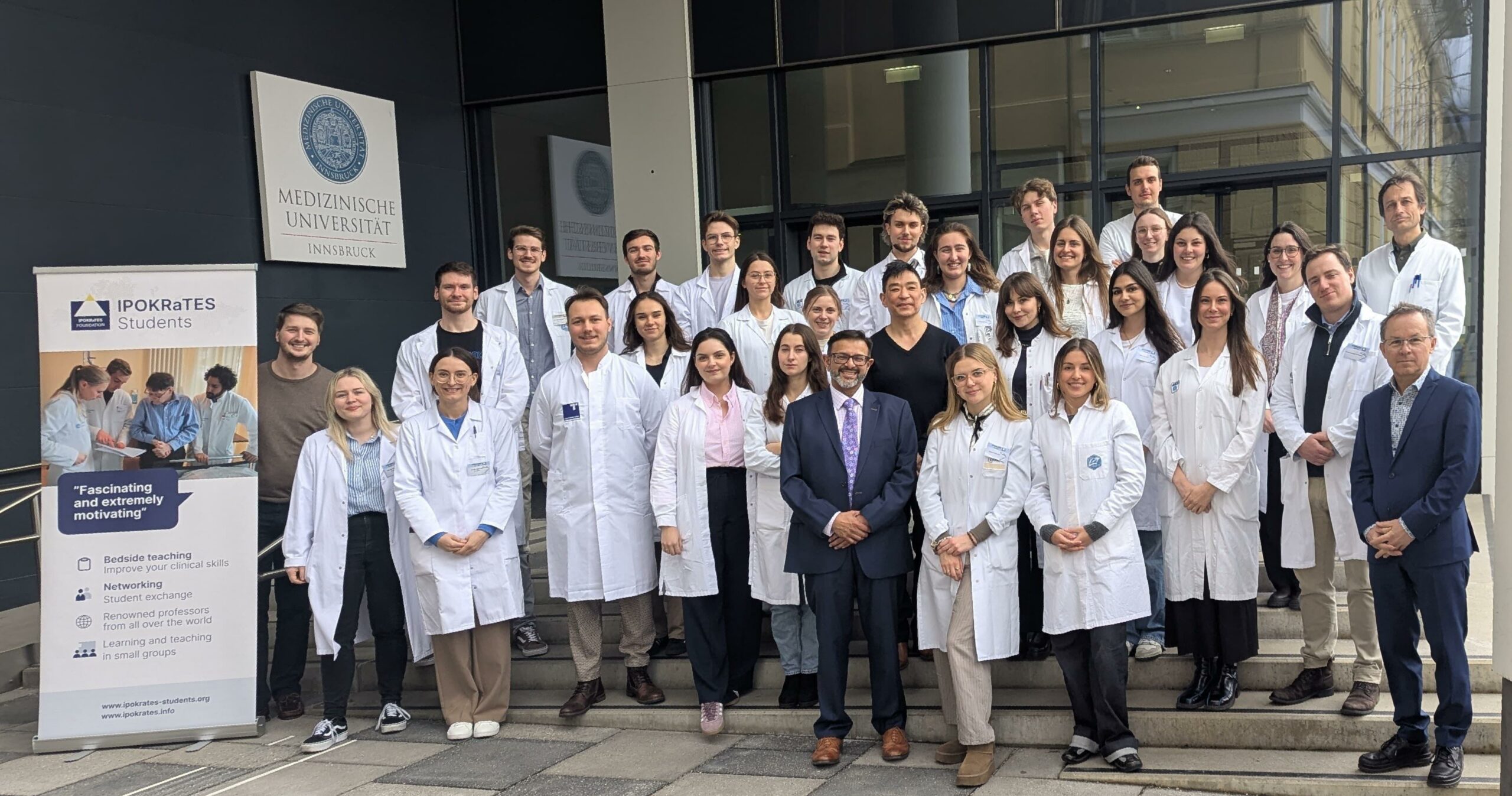
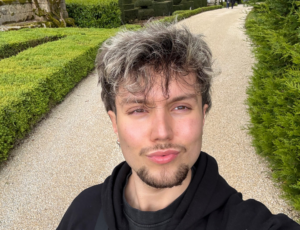
Jakob Hofer
Gastredakteur

